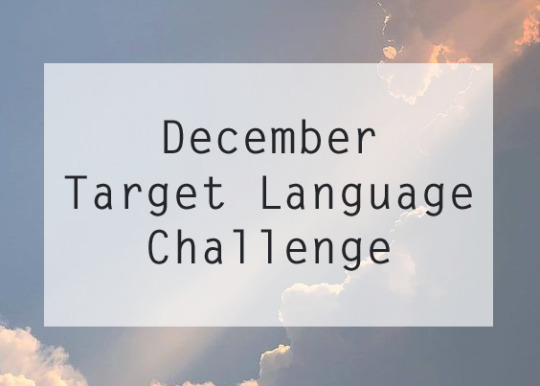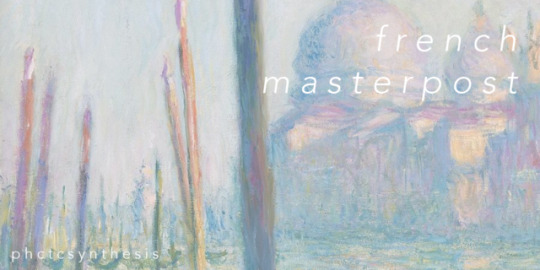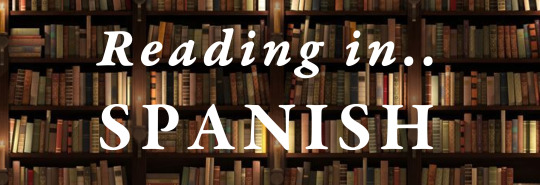Photo

Procrastination | How To Stop Hey guys, as you may have seen I recently made a post asking for advice or tips on how to stop procrastinating because I haven’t been doing much work recently and have been falling behind in my classes and didn’t have the motivation to catch up. Well, I received a lot of helpful advice that I’m really thankful for, and I’ve received a couple of messages asking me to share the advice that I received so I’m going to summarise the things that were said to me below. I want to give a big shout out to @octoberswimmer, @littlebigmouse, @ex-nihilo-persona, @icystudying, @notprincesscharming, @chokopan, @study-the-thing, @sweetscientist, and all of the anon messages that I received for all of their advice! Tips and Advice to Stop Procrastinating:
Create a studyblr dedicated to what you’re studying so that you’re motivated more to study in order to create new content for the blog.
Follow more studyblrs so that as you scroll through your dashboard you can see how productive everyone else is being and become inspired to be the same.
Listening to music can help you focus. Spotify has a bunch of already made playlists to help you focus and study, or you could easily create your own playlists on Youtuber, Soundcloud, Spotify, etc.
Dedicate an area at your home specifically for studying or being productive so that when you’re in this area your brain and your body know that you have to be productive while there. Your bed is one of the worst places to study because your brain usually relates your bed to sleeping, so you might become really tired while studying in bed. If you get distracted easily at your own home then try to go to a library or a cafe. Somewhere that you can’t get easily distracted!
Turning off or putting away your phone or anything else that may distract you is a good idea. There’s a lot of extensions for your browser that you can install that can block certain websites for a period of time so that you can’t go on them to procrastinate!
Try to prepare some snacks and something to drink before you start studying so that you don’t wander off halfway through and then not return!
Split a major task that you have to complete into say three or four smaller tasks so that it doesn’t seem as daunting to you and starting it may seem easier.
Do the 50/10 or 30/30 rule. Do work for 50 minutes and then have a 10 minute break, or work for 30 minutes and have a 30 minute break. Find an interval that works best for you and try to keep at it until you’re motivated enough to work for longer periods of time. This helps to break up a seemingly large or scary workload.
Just do ONE thing. Start with answering one question, one sentence of an essay, or doing one page of required reading. If you feel motivated enough to keep going, then keep trying, but if you don’t you can stop there knowing you’ve at least started and that it might not be as hard the next time you start.
Doing it first thing in the morning might make you feel better. The more you put it off throughout the day, the worse and more guilty you may feel.
Be honest with yourself and try to do the important tasks first, especially if there is a deadline coming.
Just do it! Starting is the hardest part and once you’ve actually begun doing what you’ve been putting off, you’ll find that it’s not as difficult or as scary as you were making it out to be.
How to Start Studying at Home In Eight Steps:
Step One: Make your bed and clean your room.
Step Two: Brush your teeth, wash your face, brush your hair, and get changed into something clean and comfortable.
Step Three: Clean and organise your study space.
Step Four: Put the materials that you will need on your study space (your pens + notebooks, textbooks, laptop, headphones, etc.)
Step Five: Prepare some snacks and something to drink.
Step Six: Put on some relaxing music or something that will help you focus.
Step Seven: Open your notebooks, textbooks, and laptop to the documents or pages that you need.
Step Eight: Just do it.
I really liked something that @icystudying said, “Motivation isn’t a bus that will stop for you, it’s a car you need to drive.”
4K notes
·
View notes
Photo

I know december is a busy month for a lot of people because of the holidays but I really wanted a language challenge to do so that I could keep on top of my Japanese studies throughout my end of year holidays want to improve your language skills or just want something to do? join this 31-day language challenge! remember, these don’t need to be long if you don’t want them to be! can be just a few sentences if that’s all you can manage If you want to keep up with this make sure to tag all your posts with #icylanguagechallenge so that I can see them all! also reblog this if you’re joining so more people can see!
day 1: write about your favourite holiday (eg, christmas, easter, national holidays) day 2: write about which city you’d love to visit! can be one you’ve visited before or an entirely new one day 3: write a letter to a friend! you don’t need to give it to them day 4: do you have any pets? want any pets? day 5: do you celebrate christmas? if not, what do you celebrate? day 6: whats your favourite food? explain it day 7: why did you start studying your target language? is it harder than you thought it would be? day 8: where do you live? what do you like/dislike about it? day 9: write about your school/uni/job day 10: why did you want to join this challenge? day 11: what apps do you recommend for studying? why? day 12: how long have you been a part of the studyblr community? why have you stayed? day 13: whats your favourite memory? day 14: whats your favourite subject? how long have you done it for? day 15: describe your room! whats in it? is it clean or dirty? day 16: do you enjoy going to the beach? why/why not? day 17: whats your favourite season? why do you like it the most? day 18: what hobbies do you have? day 20: what kind of music do you like? list your top 3 songs! day 21: do you enjoy going outside? why/why not? day 22: early bird or night owl? day 23: whats your number 1 goal in life? day 24: do you want to go to uni/college? what do you want to study there? day 25: christmas day! take a break if you need! if not then write about what you did/will do today! day 26: whats your favourite animal? what do you like about it? day 27: whats your favourite culture? why? day 28: what kind of style do you have/want to have? day 29: do you watch youtube? whos your favourite youtuber? day 30: favourite website? why do you like it so much? day 31: last day of the year! write about your new year’s resolutions!
★ please spread this around! i want as many people as possible to join ★
3K notes
·
View notes
Text
Multiple Language Learning Methods: One Isn’t Going to Cut It
Hi guys! Thank you for your patience as I get adjusted in China and try to find time to update my studyblr! Between studying my languages and teaching, it’s been a bit of a struggle. But I’ve finally got situated enough to get on Tumblr and get to work on a new post that I’m excited to finally share with you!
How many methods do you use to study languages? If you say one, you’re probably studying wrong. When you were in grade school studying the alphabet, did you just read a textbook and BAM you knew the alphabet? OF COURSE NOT! As much as our parents and instructors would wish we did learn that easily, no one ever does! No one. The best way to learn something is to experience it in different ways, situations and formats. You listened to the alphabet spoken in class by your teacher, then by an audio cd, then on tv when you watched Sesame Street, then in a song at a babysitters house, then read them in a textbook, then maybe played computer games to help you practice on top of all that. You heard the same alphabet over and over in different contexts. I used to be a big fan of Between the Lions back in the day because they would teach you a letter then a few words, then use those words and letters over and over again in different skits during the show. If the word of the day was dig, then in the cartoon Cliff Hanger, Cliff would need to spell dig to figure out how to come down from the cliff (of course it never worked, but that’s besides the point), there would be a song with dig in it, there would be activities where you’d have to insert the missing letters, and then the lions themselves would get into situation where they would need to dig something and you’d learn the word dig AGAIN. You get the point. This stuff isn’t just for children. This stuff is gold for language learning as adults, so how do you tap into this knowledge? By giving yourself multiple methods of language study just like a kid! By creating multiple methods of language studying, you are cementing everything you have learned into your memory. With this in mind, you must always have at least three methods of study to pull out when you study every week. Here are mine:
Video/Audio lesson method (example: video based lessons, Youtube video lessons, TTMIK)
1. Watch/listen to video/audio lesson once all the way through (just listen and repeat)
2. Re-watch while writing down new vocabulary (listening writing)
3. Study new vocabulary (reading)
Write out and use a joke or story to remember each word
Look for examples of uses for words using videos or songs or something (Listening) (speaking)
(if learning Korean, use Naver. If learning Chinese or Japanese use Fluent U to search for videos, commercials, music videos, and episodes of shows containing your vocab word. For everything else just search Youtube)
Write out each word ten times (writing)
4. Re-watch video/audio (Listening)
5. Repeat after video/audio (Speaking)
6. Study vocab again at end of the week
Textbook method
Tip: If you buy a textbook for self study, definitely get one with audio
1. Read textbook lesson with audio if included (reading) (listening)
2. Read lesson without audio
2. Study vocabulary (reading)
Make and write a joke or saying or story to help you remember each word (Exam
4. Look for examples of uses for words using videos or songs or something (listening) (speaking)
5. Write character out ten times each (writing)
6. Repeat after audio if included (speaking)
Vocab lists (example: Tumblr, Pinterest, etc)
Say you find a list of interesting vocabulary on Tumblr or Pinterest. You can plan to use this during the week!
1. Read vocab list (reading)
2. Find corresponding audio and repeat. You can use a dictionary audio (listening) (speaking)
3. Study vocab words (reading)
Make jokes or some story to help you remember
5. Look for examples of uses for words using videos or songs or something (reading) (speaking)
6. Repeat after audio (speaking)
Shows, Movies, Youtube Videos
1. Watch video 10 minutes at a time (listening) (DO NOT watch the whole thing unless it is short)
2. Study vocab and grammar (reading) (writing)
3. Make inside jokes or story to help remember vocabulary
4. Look for examples of uses for words using videos or songs or something (listening) (speaking)
5. Write vocab out 10 times (writing)
6. Make any relevant notes about culture and usage
7. Repeat after video sentences (speaking)
This method takes a long time over a course of weeks to finish a movie.
Music and Songs
1. Listen to entire song without looking at lyrics (listening)
2. Go find lyrics and study vocabulary line by line (reading)
3. Make jokes or a story to remember vocabulary
4. No need to look for examples of word usage if you don’t want to
5. Write out vocabulary 10 times
6. Stop studying after one paragraph or verse
7. Read the lyrics
8. Listen to the song and try to follow along
9. Do this until you learn the whole song
8. Make any cultural notes
Okay, so let me explain some details in the post. In every method, one of the steps is to make a joke or some kind of phrase to help you memorize a new vocabulary word. Let me explain. Sometimes it is very hard to remember vocabulary words unless there is a story behind them! Say your words is 苹果 (apple) so you write the English translation and then below it you write, “Sarah refuses to eat her 苹果 and has now tossed it onto the floor. Sarah is 24.” Now you’ve written a short and memorable story about apples and are more likely to remember the word 苹果 . Got it? They teach this stuff in kindergarten and now you’re going to do it for you!
Note: If you are learning Chinese, you can use the radicals to make a story if you’d like. But that would require learning the radicals for every single word, which I encourage you to do anyway, but you don’t have to.
So how do you plan these into your weekly schedule? Easy! Pick a method and do that for one week and then change it to something else the next week. Or you can change it everyday or every few days. I will talk about it more in another post!
Thank you for reading! I hope this was helpful!
8K notes
·
View notes
Text

Do you know these times when you’re sitting in front of your textbook, trying to learn these boring af vocabs you’ve seen 1000 times but still can’t remember and just wish to do something different (or hoping that the world explodes so you can at least stop)?
Well, there are more ways to learn a language and I think because we just learned how we “should” learn a language at school, we’re limited in creativity. Thanks to school it’s hard to think outside of this “textbook, vocab lists, tests, etc.” stuff but there are ENDLESS things you can do to learn a language. Remember: everything you do in your native language, you can try to do in your target language!
This is for all the people who are tired and exhausted, who are thinking about quitting or don’t have fun with their target language anymore. DON’T YOU DARE TO GIVE UP! YOU’VE COME SO FAR!
_____________________________________________ Examples for different ways of learning a language:
write a diary
summarise an article about a topic you like (cooking, fitness, etc.)
listen to a podcast/radio
listen to music (while reading the lyrics)
try to sing along with music
read out loud while reading a book/magazine/blog/etc.
watch movies/series/videos
record videos in your target language or about how studying is going (progress, problems, etc.)
write a blog (well hello there :))
use apps that make it more fun (duolingo, memrise, lingodeer)
chat with native speakers
actually talk to native speakers ( I know what a crazy idea)
read websites about things you’re interested in
use social media only available in your target language
change the language of your smartphone
change the language of your pc
change the language of your life
play games in your target language (like not necessarily for learning it, I mean just playing a normal game IN your target language)
take online lessons with teachers that make you forget you’re learning
do a challenge! (I love this one so much)
find a learning group
be active in forums (no matter about language learning or a forum in your target language)
find a language exchange partner. (You should, seriously.)
watch lessons on youtube
read a (children-)book (with audio)
talk to yourself
think in your target language (a fun way is to tell a story about your life while it’s happening like “I went down the road with a stranger always behind me, who could it be? What does he want? It got quite… too quite. I tried to keep calm but was it really a coincidence? All in the middle of nowhere?” I know I’m bad at this but I hope you get what I mean, think of it like reading a book.)
learn vocabs with pictures, type in the word you want to know and ONLY look for pictures, try to feel the word. If you google for “strawberry” (in your target language and don’t know what it means) look at the pictures, the colours, how could it smell? Make a sentence with the new word. When was the last time you ate it? How was it?
Write a story/book online or just for yourself.
Make a mindmap
Use a topic jar (a jar where you put in notes with different topics on it, you take one every day and write/talk about it)
use social media to find groups interested in learning a new language or your target language
translate texts and act like you’re a famous translator who’s the only person on earth who can translate your target language (for example if you’re reading articles about historical stuff, act like you’re the only one who can find out what happened back then and the whole world is counting on you!)
try to solve random online tests
listen to a song/audiobook/whatever and write down what you hear
search for words you want to learn and build up (funny!) sentences with them or even whole stories
read comics/mangas/etc.
search for receipts in your target language and pray to god you’re doing it right… if not, well you won’t forget the vocab again. Win-win situation. :p
search for language learning groups near your living place and actually meet them (stay safe and check everything before)
listen to children songs (I still remember the first children song I learned in English lessons… like… 11 years ago in 5th grade) these songs are supposed to stick… *cough* head shoulders knees and toes knees and toes *cough* sorry where was I?
connect with language learners over Skype (useful groups of course like German trying to learn French, Frenchman trying to learn Turkish, Turk trying to learn German)
write a list (you know… like I do right know so I don’t forget English)
describe things you see (more fun with a partner)
teach your target language to others
listen to audio while sleeping
take notes in your target language (I don’t mean for grammar rules or something like that, I mean notes you would take in your native language anyway)
write a letter (so much better than an e-mail)
write an e-mail (who has time for letters)
learn rimes
learn jokes (it’s also useful for social interaction)
talk to your pets (at least if they listen to you, if I start to talk to my cat she starts yelling into my face)
translate songs and learn the vocab of it so you have more fun listening to it later
think about a topic and write down every word you can think of and then translate them into your target language
10K notes
·
View notes
Text
Give yourself time to be lazy, but set a limit. If it’s the weekend, tell yourself that on Monday you WILL get it together and then do. Don’t fall into the trap of losing days to overindulgence and self destructive habits. Because days turn into weeks and weeks into months. It’s too easy to lose time.
165 notes
·
View notes
Text
gentle reminder
please try your best to not give up; don’t go giving up on your life, or on your goals - you can do this, you can make it through today, through tomorrow, through this year, through this life, you can accomplish your dreams and goals: just please don’t give up, and lean on your friends when you need to - they’ll listen to your pain, and help you keep going
1K notes
·
View notes
Text
I remember when I took a linguistics class in high school (like 3 years ago) and my teacher showed us this site that was super cool but I can’t remember its name. I don’t remember 100% how it was structured but it was something along the lines of you type a word in English and it shows you the word in other IE-languages. Or if it was words with the same root in other languages? (I think the latter one) Like you’d type “garden” and you would get a map of Europe and on Sweden it says like “gård” and on France “jardin” etc. as well as an English translation. I think it was something like that? Anyway, if anyone recognized this website please tell me what it’s called!
3K notes
·
View notes
Note
I'm a beginner in Chinese and having a hard time finding out where to start. What would you recommend?
@defendthechibi: mmmmdamn. ok, so Chinese is not a lang I approached on my own, I started in a class, but with that said here’s some combination of how that went down and what I would suggest (if you are a self-learner of Chinese pls do add):
1. Get a fucking fantastic foundation in pinyin and tones. I cannot emphasize this enough—start good habits now or it’ll be really terrible to find out no one understands you because you were like “tone, I’ll come back to that!” Here is a very nice pinyin chart with literally every syllable combination recorded with every tone. Here’s a pinyin practice game. If you can get someone who already speaks Mandarin to help that’s of course ideal, especially for the retroflex sounds, but not essential. Either way make sure you practice speaking aloud. Here’s a funny tone explanation that’s secretly great.
2. Pick a book and stick with it. So this is not Mandarin-specific, but I find that self-learners (myself included) have a habit of starting like three different texts for one language and it’s a mess. Decide if you wanna start with traditional or simplified characters, then pick a textbook, it wont be perfect because nothing is, and maybe just a grammar book for reference. We used Integrated Chinese in class, but I don’t know that I’d recommended it for soloing, Practice Makes Perfect has great other books I’ve used and seems like a better choice. This series is good grammar help, and so is Modern Mandarin Chinese grammar (pdf). When looking for textbooks I recommend reading reviews and also taking into consideration the time/pace you want to work at. Learning a language is a lifetime thing so really you just gotta start somewhere and plow ahead. (also check what the library has!)
2.5 Don’t buy those damn books of character lists. I’m sure you’ve seen them, “memorizing hanzi!” “500 common characters!” whaaaatever. Whatever textbook yr using will tell you what characters you need right then, and if that’s not enough there are plenty of frequency lists online. More importantly, do learn the radicals. When it comes to actually getting characters into your brain it’s some combination of mnemonic device (which works better if you make it up, not if some rando writer does anyway) and rote muscle memory—so all you need is paper. Get square/grid paper and pay attention to proportions or if you must get a book, get one that has practice space. Skritter is amazing and wonderful and I cannot praise it enough but also it is not free. But like if yr really serious you’ll probably have to put some money down somewhere. Whatever you do, do not buy Chineasy it is a plague upon our language learning household. (note: some people suggest not learning characters until after awhile of studying spoken. That sounds sort of terrible to me, and it also means you won’t be able to engage with anything Chinese online. But it is a thing, and sites like Yabla, FluentU, and ChinesePod could be a way to go [and are good anyway])
3. Practice, practice, practice! Ok cool you started doing some stuff! Check you out! If you want to get feedback start posting snippets on Lang-8, you can even meet people to skype with. Or if you want (and have a smart phone) you can get a chat buddy on hellotalk. Maybe there’s a meetup group in your area who knows. Make yourself/download an Anki deck, etc. etc. Just try to always do a little something everyday. I think because of characters Chinese has a particularly steep learning curve—I still can’t open a webpage and just like read it—so it might be better to focus on practicing what you know rather than trying to engage too much with “actual” Chinese. That said….
4. Don’t loose hope, find fun things in Chinese. Even if it’s not actively practicing your language skills, find ways to enjoy Chinese that don’t drain you like too much studying will. Listen to music, read about idioms, watch movies, or if you’re a nerd like me, read about Chinese linguistics! If you have a hobby, you can find stuff on your hobby in Chinese. e.g. here is a whole cooking channel that is also subbed in English. DramaFever has, duh, lots of dramas, but is not free.
I hope that sounds like a setup for success! Here’s some dictionaries: MDGB, HanziCraft, lineDict (let’s you draw characters). If you have a smartphone get Pleco. Here’s a thing that annotates text & has rollover translation: MandarinSpot (maybe get a plug-in if yr into those). Here are general help sites: SayJACK & Chinese Grammar Wiki. There are so so so many other resources out there, but rather than stockpile them all right now I think it’s better to focus on whatever textbook/system you chose and just start moving. Once you have a little more of a base then look for cool blogs or whatever works well for YOU.
If there was something more specific you wanted just throw that @ me. If people have suggestions you can send them in and I’ll compile them so we don’t have to reblog this massive thing くコ:彡 くコ:彡 くコ:彡
2K notes
·
View notes
Photo

hello friends!!! i’m a language enthusiast (+ a language minor in college hehe). originally i was gonna make a post of all languages, but that already exists + i don’t want to reiterate + i have SO many french resources and that’s my second primary language so i thought i’d focus on that???
general language
big subject masterpost by @chemlstry
how to learn a new language by @studiyng
learning languages without actually studying them by @insomniac-arrest
things i learnt regarding learning languages by @star-study
100 perfect songs for traveling from around the world by @polyglottraveler
ap exams masterpost by @sootudying
tips to learn a new language by @darasteine
learning a language on your own by @sootudying
links for improving your vocabulary by @portiastudies
grammar resources yay! by @giuliaslangblr
speaking up more in class by @emmastudies
tips for foreign language writing assessments by @moonstruckstudies
helpful books to learn languages by @les-langues-sont-ma-vie
linguti by @teacupful-of-languages
general french
folder w/ beginner’s courses, grammar, etc. by @lovelybluepanda
french tips for beginners by @studyspirits
everything i use to make learning french fun by @jeparletoutesleslangues
a french masterpost by @organisaticns
how to sound more natural in french by @crookedlanguagestudent
learning french on your own by @wonderful-language-sounds
speaking on the AP french exam by @ap-french
lesser seen french tips by @francetrash
random little french facts
french resources masterpost by @highschoolering
studying/learning a foreign language by @emmastudies
french resources masterpost by @nathalliastudies
french masterpost by @bonbonlanguage
dear french community, listen up! by @studyblr-bri
french resources list by @openstudynotes
french writing and speaking cheat sheet by @hstudies
verb conjugation sheets by @apamexico
french vocab
vegetables in french by @goldstueck
everyday activities by @language-minded
back-to-school by yours truly @phctcsynthesis
when things are pointless by @lucylangblr
mental health by @lemonadeandlanguages
unrequited love by @word-stuck
ways to say yes by @language2go
langblr french masterpost (vocab only) by @study-katherine
french idiom masterpost by @revisionandtea
la rentree du petit nicolas by @frenchaise
describing your place by @pancake-studying
french tenses
the french imperative by @bonbonlanguage
top 100 most common french verbs by @colonelstudy
french verb masterpost by @studypuddles
french verbs by @languageramblings
the verb penser by @all-things-francais
subjunctive or indicative? by @language-renard
the verb ‘to return’ by @bonjourfrench
the french conditional by @languesetmoi
commonly used reflexive verbs by @bonjourfrench
le conjugueur by @jaimetalangue
verbs taking à, de, or no preposition by @bonjourfrench
the future proche by @futurefrenchprof
the subjunctive by @futurefrenchprof
participes passés by @anonimasulsublime
conjugating the subjunctive by @whosaprettypolyglot
using the passé simple by @crookedlanguagestudent
french grammar
french linking words by @frenchaise
french punctuation by @ladybaguette
variations in french pronunciation by @maptitude1
teen french expressions by @studyingharder
how to guess the gender of most french nouns by @frenchaise
asking questions in french by @frenchaise
relative pronouns by @kalenaslangblr
essay phrases by @llenguas
french homophones and how to tell them apart by @lemonadeandlanguages
writing essays in french part 1 by @french-ement-votre
french literature, film, + music
french women write classics, too by @antigonick
french animation recommendations
the classics by @ap-french
french book PDFs by @lovelybluepanda
easy french reading by @ap-french
francophone comic books by @languagesarebeautiful
french youtubers + singers/songs by @theperksofbeingstudying
french music recommendations by @seriouslystudying
french music by @studyplants
french music you should listen to by @teabeforeten
french listening by @ap-french
french movie night by @ap-french
6K notes
·
View notes
Text
French Children’s Books
An anon asked me for french beginners books, which I’m assuming meant children’s books. If not, just let me know what you did mean, nonny.
1. Le Petit Nicolas- these are adorable short stories that are about a little french boy in the 60s. I’ve read a few, and they were all pretty simple to read, plus the pictures were cute.
2. Le Petit Prince- this is a story about the little prince and those that he meets. Though it’s super famous, I actually haven’t read it yet because it’s said to be pretty hard for a “children’s” book.
3. Max and Lili- this is a series about Max and Lili, 2 siblings. It talks about everyday life and seems really cute.
4. Madeleine- stories about a little girl and her 12 classmates.
5. Mr. Leon’s Paris/ Le Paris de Leon- a book about the adventures of a taxi driver in Paris.
There are also some great sites where you can find children’s books:
1. The French Experiment- a site with a few famous stories like the 3 little pigs and goldilocks and the 3 bears translated into french. This site is great because it has the English translation along with the french.
2. Children’s Books Forever- they have a ton of children’s books. There are a lot of languages other than french too.
3. Jeunesse- this site has stories for ages 0 to 12, and it separates it’s stories by time it should take to read them (less than 5 mins to over 20 mins). The stories are all pretty cute and fun to read.
I hope this list was helpful, nonny! Good luck with your reading!
320 notes
·
View notes
Text
Disney Movie Titles in French
Cendrillon: Cinderella La Belle et la Bête: Beauty and the Beast La Belle au Bois Dormant: Sleeping Beauty La Petite Sirène The Little Mermaid Blanche-Neige et les Sept Nains: Snow White and the Seven Dwarfs Le Bossu de Notre-Dame: The Hunchback of Notre Dame Le Livre de la Jungle: The Jungle Book Le Roi Lion: The Lion King Alice au Pays des Merveilles: Alice in Wonderland Hercule: Hercules Les 101 Dalmatiens: 101 Dalmatians Les Aristochats: The Aristocats Bernard et Bianca au Pays des Kangourous (Bernard et Bianca en Australie): The Rescuers Down Under Oliver et Compagnie: Oliver & Co. Pinocchio: Pinocchio Raiponce: Tangled La Reine des Neiges: Frozen La Belle et le Clochard: Lady and the Tramp Atlantide, l'empire Perdu: Atlantis, the Lost Empire Basil, Détective Privé: The Great Mouse Detective La Planète au Trésor : Un Nouvel Univers: Treasure Planet Frère des Ours: Brother Bear Rox et Rouky: The Fox and the Hound La Princesse et la Grenouille: The Princess and the Frog Les Mondes de Ralph: Wreck-It Ralph Kuzco, l'empereur Mégalo: The Emperor’s New Groove Merlin l'Enchanteur: The Sword in the Stone Dingo et Max (Complètement Dingo): A Goofy Movie Robin des Bois: Robin Hood Aladdin: Aladdin Cars: Quatre Roues (Les Bagnoles): Cars Dumbo: Dumbo Fantasia: Fantasia Lilo et Stitch: Lilo & Stitch Mulan: Mulan Peter Pan: Peter Pan Toy Story (Histoire de Jouets) : Toy Story
*Titles in parentheses are Canadian French

403 notes
·
View notes
Text
Using Buzzfeed for Reading Practice
I just recently found out that Buzzfeed has different websites for different countries, WHICH ALSO MEANS THAT THERE’S TONS OF READING MATERIAL IN DIFFERENT LANGUAGES! This is really really good for reading practice, since the articles are short, the genre is familiar, and the topics are relevant and interesting. At the moment, there are only 6 languages available (including English).
Brazilian Portuguese
English (US) / English (UK) / English (AU) / English (CA)
French
German
Japanese
Spanish / Buzzfeed Spain / Spanish (Mexico)
HAVE FUN!
6K notes
·
View notes
Text
My first langblr post ever!

Ok, I just saw this post: http://langsandlit.tumblr.com/post/145615242768/ap-french-looking-for-something-quick-to-read
and I will try to do the same with spanish poetry & stories,like it was asked.
Because Spanish changes in an important way depending on the country, probably you should pay attention to the author nationality.
To begin:
The Little Prince /Spanish Version/ I know this autor is french but the classic of all the times. Very easy to read and lovely.
Stories:
Julio Cortázar (He born in Belgium, but he lived a lot in Argentina)
Eduardo Galeano (Uruguay)
More Classics stories spanish with the nacionality of the autor: here
Classic stories + audiobook: here
If that wasn’t enough: last (go down to find the stories)
Poetry:
Oliverio Girondo (Argentina )
Pablo Neruda (chile)
Mario Benedetti (Uruguay )
Adolfo Bioy Casares (Atgentina)
Gabriel García Márquez (Colombia)
Federico García Lorca (España)
More poetry with the author’s country: here.
Comics:
Mafalda by Quino (Argentina)
Liniers by Ricardo Siri Liniers (Argentina)
If you are looking for a long book for advanced spanish readers, I personally love Carlos Ruiza Zafón’s trylogy : “El cementerio de los libros olvidados” ( La sombra del viento - EL Juego del Angel - El prisionero del cielo )
Well this is my first, first ever langblr, I hope someone like it and found it helful.
Any recomendation, critique , correction or what ever is welcome.
Thanks!!!!
693 notes
·
View notes
Text
Basic conversation
Small talk :
- hello : bonjour / bonsoir (after 6pm), salut (familiar)
- goodbye : au revoir, salut (familiar)
- good afternoon : bonne après-midi (when you leave)
- goodnight : bonne soirée (when you leave)
- how are you : comment ça va ? ça va ? (familiar)
- I’m fine : je vais bien, ça va
- thank you (very much) : merci (beaucoup)
- you’re welcome : de rien
- see you later / tonight / tomorrow : on se voit plus tard / ce soir / demain
La présentation :
- what is your name ? : comment tu t’appelles / comment vous appelez-vous ? ; quel est ton / votre nom ?
- my name is _ : je m’appelle _ (literally “I call myself _”)
- how old are you ? quel âge as-tu / avez-vous ?
- I’m _ years old : j’ai _ ans (”I have _ years”)
- and a half : et demi
- how tall are you ? : quelle taille mesures-tu / mesurez-vous ?
- I am 5′7/1,70m : je mesure / fais un mètre soixante-dix
- are you single ? : es-tu / êtes-vous célibataire ? as-tu / avez-vous quelqu’un dans votre vie ? (”do you have anyone in your life ?”)
- I am dating someone : je suis en couple / avec quelqu’un) ; je vois quelqu’un (”I’m seeing someone”) sounds less serious, also used to mention a therapist)

Les questions :
- what about you ? : et toi / vous ?
- what’s new ? : qu’est-ce qu’il y a de nouveau ? ; quoi de neuf ? (familiar)
- what do you mean ? : comment ça ? ; qu’est-ce que tu veux / vous voulez dire ? c’est-à-dire ?
- what is that ? : qu’est-ce que c’est (que ça / cela) ?
- who is that ? qui est-ce ? qui c’est ? (familiar)
- I don’t remember : je ne me rappelle pas
- I don’t remember that : je ne m’en rappelle pas
- sorry ? : pardon ? excuse-moi / excusez-moi ?
- are you sure ? : es-tu / êtes-vous sûr.e ?
- are you sure about that ? : en es-tu / en êtes-vous sûr.e ? c’est sûr ? (familiar)
- I don’t know : je ne sais pas
- I don’t really know : je ne sais pas trop / pas vraiment
- who knows ? : qui sait ?
Les gros mots :
- shit : merde / fait chier
- fuck : putain (usable in pretty much any situation)
- shut up : (ferme / fermez) ta / votre (sg) / vos (pl) gueule.s
- asshole : trou du cul / trou de balle
- fucker : connard / connasse
- bastard : bâtard
- bitch : sale pute
- / : nom de Dieu (”in the name of god”, when you’re pissed)
- I don’t give a fuck : je m’en fous ; je m’en branle (branler : to masturbate) ; je m’en cogne ; je n’en ai rien à foutre ; je n’en ai rien à carrer ; je m’en bats les couilles (for males) or je m’en bats les ovaires (females)
- go fuck yourself : va te / allez vous faire foutre ; va / allez chier
- go die : va / allez mourir ; va / allez crever (familiar)
- son of a bitch : fils de pute

883 notes
·
View notes
Photo

I previously made a post about Russian Podcasts and German Podcasts. Here is one for French since I started the language. Many you can find on iTunes, on Android using Pocket Casts, or on their own websites/RSS feed. There are several more podcasts in French, but these should be enough for now.
Language Learning
Coffee Break French
FrenchPod101
French Your Way
Je French
Learn French with Alexa
Mot du Jour
One Minute French
Real Deal French
Spotify- Learn French
Survival French Phrases
Listening For Beginners-Intermediates
Cultivate Your French: Intermediate-Advanced.
Daily French Pod: Beginner-Advanced. Transcripts can be bought.
Easy French Poetry: Beginner-Int. Includes transcripts.
Français Authentique: Intermediate-Advanced. Includes transcripts.
French Podcasts: A2-B1. Includes transcripts.
Journal en français facile: Intermediate. Includes transcripts.
Learn French by Podcast: Beginner to Advanced. Includes transcripts and grammar lessons.
Native French Speech Podcast: Int.-Advanced. Transcripts can be bought.
News in Slow French: Beginner to Intermediate. Includes transcripts.
One Thing in a French Day: A2-B2. Includes transcripts.
The French Podcast: Beginner to Intermediate. Transcripts can be bought.
French Only
AnthroStory: Anthropology.
AppLoad: Gadgets and technology.
Bienvenue à Valnuit: French version of Welcome to Nightvale
La Conversation scientifique: Science.
Grosses Têtes: News & culture.
L’histoire du soir: Medieval literature.
LSD, La série documentaire: Culture & news.
Les Nouveaux chemins de la connaissance: Philosophy.
Les Pressés de l’Expression: Language and linguistics.
Parler Cuisine: Food and cooking.
Podcasts d'Europe: Culture, economics, politics.
Podcast Science: Science.
Poésie et ainsi de suite: Poetry
Positron: Music, film, TV.
Le RDV Jeux: Gaming.
Les Regardeurs: Art.
Rendez-Vous Avec X: History
Le rendez-vous Tech: Technology.
Le Salon noir: History.
Franceculture: Several podcasts can be found here and sorted by theme.
Franceinter: Website that hosts several more podcasts.
Francemusique: Website that has more podcasts.
5K notes
·
View notes
Text
How to start learning Chinese as a total beginner ٩̋(ˊ•͈ ꇴ •͈ˋ)و
I made this rough guide for a follower and realized it could be of use to those of you who want to learn Mandarin but might not know where to start.
I.
As a complete beginner, the first thing you need to do is familiarize yourself with the pinyin system and Chinese pronunciation. And MASTER those tones! Tones are a pain in the butt at first, but they’re vital.
Here are some videos that will help you with these first steps (At this point don’t focus on the characters, just pronunciation):
Comprehensive pinyin review
Hard to pronounce sounds
Learn tones the fun way
The best way to practice tones
(I love Yangyang! Her beginner content is a good supplement to traditional textbook learning)
2.
The best way to begin learning Chinese for real is with a good textbook. When I was an absolute beginner in 9th grade, the textbook that we used in class was Integrated Chinese Level 1 Part 1 (tip: rent to save $$$).
I highly recommend this book; it gives a very good foundation in grammar and vocabulary for beginners. Since it’s a popular textbook, you’ll also be able to find a lot of study materials for it if you search on quizlet, youtube, etc. Plus, there’s this glorious blog.
In class, we also used the workbook that goes along with the textbook, but if you’re not taking a class where it’s required it probably won’t be of much use, so I wouldn’t bother. Just remember to take good notes and quiz yourself frequently.
III.
For studying the vocabulary in the book, use printout sheets like these and copy each character many times until you can write it quickly and fluidly. Once you feel comfortable writing the character, move on to creating flashcards and memorizing/quizzing. I recommend using either physical flashcards or Quizlet for this.
Make sure for each lesson’s dialogue you read aloud to practice speaking, and record yourself if you want.
Here are some online resources that will specifically help with studying Integrated Chinese L1P1:
Textbook audio (You will need this!)
Acted skit of lesson 7 dialogue
Different Quizlet decks for each textbook lesson
Playlist of helpful study videos
IV.
Now I’ll share some additional resources.
For more grammar practice, in addition to the textbook you can use Chinese Grammar Wiki, but stick to the A1 points for now.
Simple vocab table
Best Chinese dictionary app ever
Some fun videos about Chinese slang/internet culture
Good luck in your studies!!! 加油!
675 notes
·
View notes